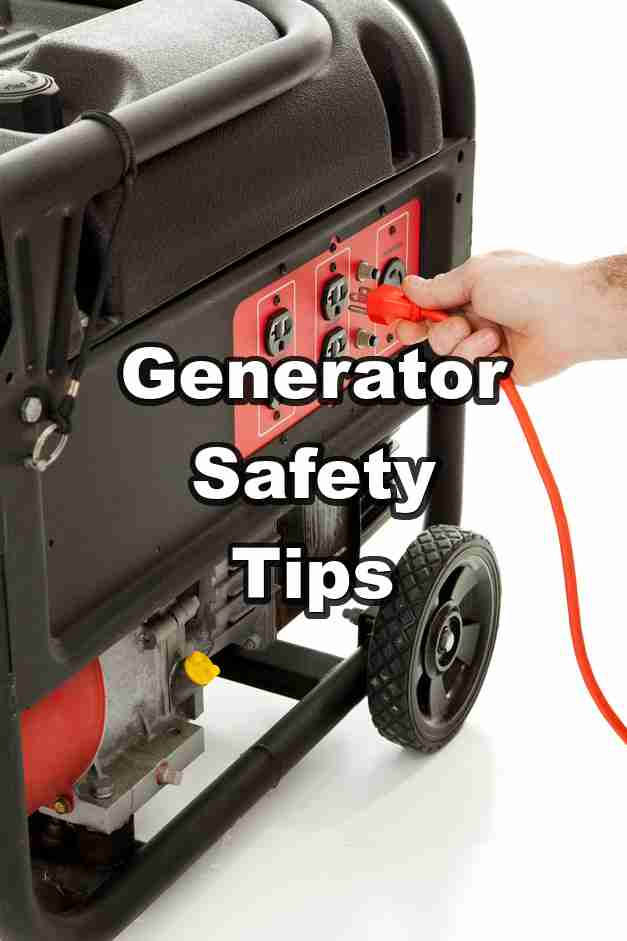Generators can be a lifesaver during power outages and emergencies, providing essential electricity to keep your home running smoothly. However, improper use of generators can lead to serious hazards such as carbon monoxide poisoning, electric shock, and fire. To ensure your family’s and property’s safety, it is crucial to understand and follow proper generator safety practices. This comprehensive guide will provide you with the knowledge and tips needed to use your generator safely and effectively.
Proper Generator Placement and Operation
One of the most critical aspects of generator safety is proper placement. Always operate your generator outdoors, at least 20 feet away from windows, doors, and vents, to prevent carbon monoxide from entering your home. Carbon monoxide is a colorless, odorless gas that can be deadly if inhaled in large quantities. Ensure that your generator has adequate ventilation, and avoid running it in enclosed spaces such as garages or sheds.
When operating your generator, place it on a dry surface and protect it from rain and wet conditions. This will help prevent electric shock and keep your generator functioning properly. See our article “Can a Generator Get Wet?“
Electrical Safety and Preventing Electrocution
Proper grounding is essential to prevent electric shock when using a generator (see How to Ground a Generator). Follow the manufacturer’s instructions for grounding your generator, and use heavy-duty, outdoor-rated extension cords with the correct wattage rating. Avoid overloading the generator by plugging in too many appliances, and never try to power your home by plugging the generator into a wall outlet, a practice known as “back feeding.” This can put utility workers, your neighbors, and your household at risk of electrocution.
If you have a permanently installed generator, consider hiring a professional electrician to install a transfer switch. This will allow you to safely connect your generator to your home’s electrical system without the risk of backfeeding.
Fuel Safety and Fire Prevention
Generator fuel, such as gasoline, propane, or diesel, should be stored and handled properly to prevent fires. Store fuel in an approved safety can, away from living areas and fuel-burning appliances. Before refueling your generator, always turn it off and allow it to cool down completely. Gasoline spilled on hot engine parts can easily ignite.
Keep your generator away from flammable materials, and always have a fire extinguisher nearby in case of an emergency.
Maintenance and Testing for Safe Operation
Regular maintenance is key to ensuring your generator operates safely and efficiently. Follow the manufacturer’s recommendations for oil changes, air filter cleaning, and spark plug replacement. Before each use, inspect your generator, cords, and connections for any damage or wear.
Test your carbon monoxide detectors regularly to ensure they are working properly. These detectors can alert you to dangerous levels of carbon monoxide in your home, giving you time to evacuate and seek fresh air.
Generator Safety Best Practices and Tips
- Always read and follow the manufacturer’s instructions and guidelines for your specific generator model.
- Educate your family members about generator safety, including proper placement, cord usage, and refueling procedures.
- Develop a plan for generator use during emergencies, including designated outdoor locations and a list of essential appliances to power.
- Know when to seek professional help, such as hiring an electrician for installation or complex power needs.
By prioritizing safety and implementing these best practices, you can enjoy the benefits of your generator without putting yourself or your family at risk. Remember, taking the time to use your generator safely can save lives and protect your property.
Conclusion
Generator safety should be a top priority for every homeowner. By understanding the potential hazards and following the tips outlined in this guide, you can confidently use your generator to power your home during outages and emergencies. Share this information with your friends and family to help spread awareness about the importance of generator safety. Together, we can create a safer environment for our communities.
And our last generator safety tip: don’t neglect generator maintenance.







Leave a Reply